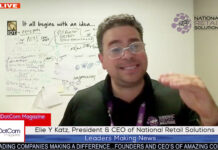Inorganic chemistry is a branch of chemistry that deals primarily with compounds that are not organic in nature, meaning they do not contain carbon-hydrogen (C-H) bonds. This field encompasses a vast array of substances, ranging from simple molecules like sodium chloride (NaCl) to complex coordination compounds and metal-organic frameworks. Inorganic chemistry plays a pivotal role in various scientific disciplines, including materials science, bioinorganic chemistry, environmental science, and catalysis.
The study of inorganic chemistry explores the behavior, properties, synthesis, and applications of inorganic compounds. It investigates the bonding patterns, structure, and reactivity of elements across the periodic table. Inorganic chemistry also investigates the interactions between different types of compounds, such as metals and non-metals, and their roles in biological systems and industrial processes. Understanding inorganic chemistry is crucial for developing new materials with specific properties, designing catalysts for chemical reactions, and exploring the fundamental principles governing molecular interactions in diverse environments.
Inorganic chemistry encompasses several key areas of study, each with its own unique focus and applications. Coordination chemistry, for example, examines the structures and properties of coordination compounds, which are complexes formed by a central metal ion or atom surrounded by ligands. These ligands can donate pairs of electrons to the metal, influencing the compound’s stability and reactivity. Solid-state chemistry investigates the properties of solid materials, including their crystal structures, electrical and magnetic properties, and how these properties relate to their chemical compositions.
Another important area within inorganic chemistry is bioinorganic chemistry, which explores the role of metals in biological systems. Metals such as iron, copper, and zinc are essential for numerous biological processes, acting as cofactors in enzymes or playing structural roles in proteins. Understanding the interactions between metal ions and biomolecules is crucial for advancing fields like medicine and pharmacology.
Inorganic chemistry also plays a vital role in environmental science and sustainability efforts. Studying the behavior of heavy metals in soil and water, for instance, helps researchers develop strategies for environmental remediation and pollution control. Inorganic catalysts are also essential in industrial processes, where they facilitate chemical reactions that produce everything from fertilizers to pharmaceuticals.
The historical development of inorganic chemistry can be traced back to the ancient civilizations that first discovered and utilized metals like copper, iron, and tin. Alchemy, the precursor to modern chemistry, also played a significant role in the study of metals and minerals. However, it was not until the 18th and 19th centuries that inorganic chemistry began to emerge as a distinct scientific discipline, with the classification of elements and the development of atomic theory laying the groundwork for systematic investigation.
The advent of spectroscopy and X-ray crystallography in the late 19th and early 20th centuries revolutionized the study of inorganic compounds by allowing scientists to analyze their structures in detail. This period saw the discovery of new elements and the development of theories to explain their properties and behaviors. Today, inorganic chemistry continues to evolve with advancements in computational chemistry, nanotechnology, and materials science opening up new avenues for research and application.
Inorganic chemistry continues to evolve with advancements in computational chemistry, nanotechnology, and materials science opening up new avenues for research and application. Coordination chemistry remains a vibrant area of study, focusing on the interactions between metal ions and ligands to form complexes with unique properties. These complexes are crucial in fields ranging from catalysis to medicine, where the design of specific coordination environments can enhance reactivity or tailor biological activity.
Solid-state chemistry delves into the structures and properties of crystalline solids, investigating how their atomic arrangements dictate characteristics such as conductivity, magnetism, and optical behavior. This branch of inorganic chemistry is essential for developing new materials with desired electronic and mechanical properties, such as semiconductors for electronic devices or superconductors for energy transmission.
Bioinorganic chemistry explores the essential roles of metals in biological systems, studying how metal ions participate in enzymatic reactions, signal transduction pathways, and DNA replication. Understanding these interactions is critical for developing metal-based drugs, imaging agents, and biomaterials that can interface seamlessly with biological tissues.
Environmental inorganic chemistry addresses the impact of inorganic pollutants on ecosystems and human health. Researchers in this field study the behavior of heavy metals, metalloids, and other inorganic contaminants in soil, water, and air, seeking methods to mitigate pollution and restore environmental quality. Techniques such as molecular modeling and spectroscopy are employed to understand pollutant interactions and design effective remediation strategies.
The interdisciplinary nature of inorganic chemistry ensures its relevance across scientific disciplines and industrial sectors. In materials science, researchers apply principles from inorganic chemistry to develop advanced ceramics, catalysts, and functional nanomaterials with applications in electronics, energy storage, and environmental protection. Inorganic catalysts are indispensable in industrial processes, enabling efficient and selective chemical transformations that underpin the production of fuels, pharmaceuticals, and fine chemicals.
Theoretical advancements in inorganic chemistry, including density functional theory and quantum mechanics, provide insights into chemical bonding, reaction mechanisms, and the electronic structures of complex molecules. These computational tools complement experimental approaches, allowing researchers to predict the properties of novel materials and optimize catalysts for specific industrial applications.
Looking forward, inorganic chemistry is poised to address emerging challenges such as sustainable energy production, climate change mitigation, and personalized medicine. By harnessing the unique properties of inorganic compounds and materials, researchers can innovate solutions that contribute to a more sustainable and technologically advanced society.
Inorganic chemistry also intersects with fields like nanotechnology, where researchers manipulate nanoscale materials composed of inorganic compounds to achieve unique properties. These nanomaterials find applications in areas such as sensors, drug delivery systems, and environmental monitoring devices due to their high surface-to-volume ratios and tailored chemical reactivity. By exploring the synthesis and behavior of these nanostructures, scientists can unlock new avenues for enhancing technological capabilities and addressing pressing societal needs.
Furthermore, the study of inorganic chemistry extends into astronomical and planetary sciences, examining the compositions of celestial bodies and the processes that govern their formation and evolution. Spectroscopic analysis of stellar atmospheres and planetary surfaces reveals the presence of inorganic compounds that provide clues about the conditions and history of these celestial objects. This interdisciplinary approach not only deepens our understanding of the universe but also informs our search for life beyond Earth by identifying potential habitats and chemical signatures.
Inorganic chemistry continues to be a dynamic and indispensable field within the broader realm of chemistry. Its breadth and depth encompass fundamental research into chemical bonding and structure, as well as practical applications that impact diverse industries and scientific disciplines. As technology advances and new challenges arise, inorganic chemistry will remain pivotal in driving innovation and addressing complex societal and environmental issues in the decades to come.

















